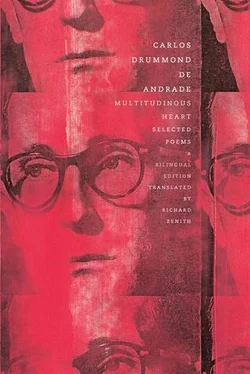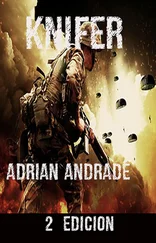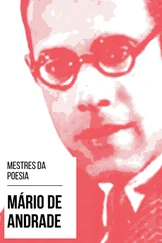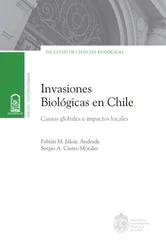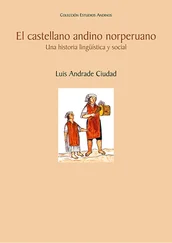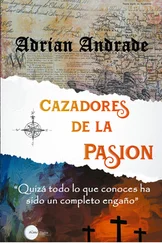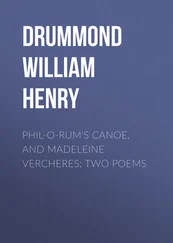Will I always be nutty? Always a liar?
Will I mock the world? Believe in myths?
For a long time I’ve felt the old man in me.
He began to harass me in childhood.
Today I’m alone. No little boy
jumps out of my life to restore it.
But if I could start the day all over!
Dust off my adoration, my shout,
my hunger … To me all things look
impossible and clear-cut, in space.
O explanation of my life,
you’ve remained, among stern idols,
beyond the pale of my irony,
like an object lost on the street.
My experiences have multiplied:
journeys, thefts, deep solitudes,
despair (today cold crystal),
melancholy (cherished and resisted),
and so much indecision between
two seas, two women, two items of clothing.
This entire hand to trace a gesture
so feeble it never takes shape,
it languishes, a zone of desire
sealed off by hostile shrubs …
(A man looks at himself without love,
undresses with no curiosity.)
But time and the idea of the past
surprise you in the curve of a garden.
Remembrance comes, it wells up
without warning in the movie theater.
And the memories stream from your neck,
from your jacket, the war, the rainbow;
they take root in your sleep and hound you,
in search of a lens to reflect them.
And after those memories, time
arrives with a new batch of memories,
until you’re so weary you balk
and don’t know if life is or was.
Is this house that grabs your attention
in Acre? In Argentina? In you?
What word did you hear, and where, when?
Was it indifferent or heartfelt?
A piece of you breaks out of the mist,
flying perhaps to Bahia, while other
pieces vanish into the atlas,
the Country of Laughter, and your black nanny.
What a jumble of things at twilight!
What a treasure! Useless, it’s true.
Oh, if all those things could be arranged
into a well-reasoned yet sensitive whole:
an order, a light, a happiness
settling on the ravaged breast …
Not the passion of the twenty-year-old
nor renunciation of the things he chose,
but penetration into yielding wood,
an effortless plunging into a pool,
a painless discovery, a fusion, something
like an intelligence of the universe
purchased with salt, wrinkles, and hair.
Este retrato de família
está um tanto empoeirado.
Já não se vê no rosto do pai
quanto dinheiro ele ganhou.
Nas mãos dos tios não se percebem
as viagens que ambos fizeram.
A avó ficou lisa, amarela,
sem memórias da monarquia.
Os meninos, como estão mudados.
O rosto de Pedro é tranquilo,
usou os melhores sonhos.
E João não é mais mentiroso.
O jardim tornou-se fantástico.
As flores são placas cinzentas.
E a areia, sob pés extintos,
é um oceano de névoa.
No semicírculo das cadeiras
nota-se certo movimento.
As crianças trocam de lugar,
mas sem barulho: é um retrato.
Vinte anos é um grande tempo.
Modela qualquer imagem.
Se uma figura vai murchando,
outra, sorrindo, se propõe.
Esses estranhos assentados,
meus parentes? Não acredito.
São visitas se divertindo
numa sala que se abre pouco.
Ficaram traços da família
perdidos no jeito dos corpos.
Bastante para sugerir
que um corpo é cheio de surpresas.
A moldura deste retrato
em vão prende suas personagens.
Estão ali voluntariamente,
saberiam — se preciso — voar.
Poderiam sutilizar-se
no claro-escuro do salão,
ir morar no fundo dos móveis
ou no bolso de velhos coletes.
A casa tem muitas gavetas
e papéis, escadas compridas.
Quem sabe a malícia das coisas,
quando a matéria se aborrece?
O retrato não me responde,
ele me fita e se contempla
nos meus olhos empoeirados.
E no cristal se multiplicam
os parentes mortos e vivos.
Já não distingo os que se foram
dos que restaram. Percebo apenas
a estranha ideia de família
viajando através da carne.
This family portrait is looking
dusty. You can no longer see,
in my father’s face, how much
money he managed to make.
The travels of my two uncles
aren’t apparent in their hands.
No memory’s left of the monarchy
in Grandma, smoothed and yellowed.
The boys, how they’ve changed.
Pedro’s face is peaceful,
reflecting only good dreams.
And João is no longer a liar.
The garden has become surreal.
The flowers are gray disks.
And the sand, under deceased
feet, is a sea of fog.
In the semicircle of chairs
some movement can be noted.
The kids are trading places,
but without a sound: it’s a photo.
Twenty years is a long time,
enough to rework any image.
If one figure slowly fades,
another asserts itself, smiling.
Those strangers sitting there
are my relatives? I don’t believe it.
They’re visitors having fun
in a living room rarely used.
Certain family traits
have survived in their bodily
postures, enough to suggest
that a body is full of surprises.
In vain the frame encases
the people in this portrait.
They are there voluntarily
and could fly away, if necessary.
They could dissipate into
the room’s chiaroscuro,
or go live in the nooks of furniture
or in the pockets of old vests.
The house has lots of drawers
and papers, long flights of stairs.
What sort of trick might things,
bored with matter, resort to?
The portrait doesn’t answer.
It stares at me and observes
itself in my dusty eyes.
My dead and living relatives
proliferate in the glass.
I’ve lost track of who went,
who stays. All I grasp
is the strange idea of family
moving through the flesh.
Estamos quites, irmão vingador.
Desceu a espada
e cortou o braço.
Cá está ele, molhado em rubro.
Dói o ombro, mas sobre o ombro
tua justiça resplandece.
Já podes sorrir, tua boca
moldar-se em beijo de amor.
Beijo-te, irmão, minha dívida
está paga.
Fizemos as contas, estamos alegres.
Tua lâmina corta, mas é doce,
a carne sente, mas limpa-se.
O sol eterno brilha de novo
e seca a ferida.
Mutilado, mas quanto movimento
em mim procura ordem.
O que perdi se multiplica
e uma pobreza feita de pérolas
salva o tempo, resgata a noite.
Irmão, saber que és irmão,
na carne como nos domingos.
Rolaremos juntos pelo mar …
Agasalhado em tua vingança,
puro e imparcial como um cadáver que o ar embalsamasse,
serei carga jogada às ondas,
mas as ondas, também elas, secam,
e o sol brilha sempre.
Sobre minha mesa, sobre minha cova, como brilha o sol!
Obrigado, irmão, pelo sol que me deste,
na aparência roubando-o.
Já não posso classificar os bens preciosos.
Tudo é precioso …
e tranquilo
como olhos guardados nas pálpebras.
We’re even, brother, you got your revenge.
Down came the sword
and off came my arm.
Here it is, dripping red.
My shoulder hurts, but upon it
your justice gleams.
Now you can smile, molding your lips
into a loving kiss.
I kiss you, brother,
Читать дальше
